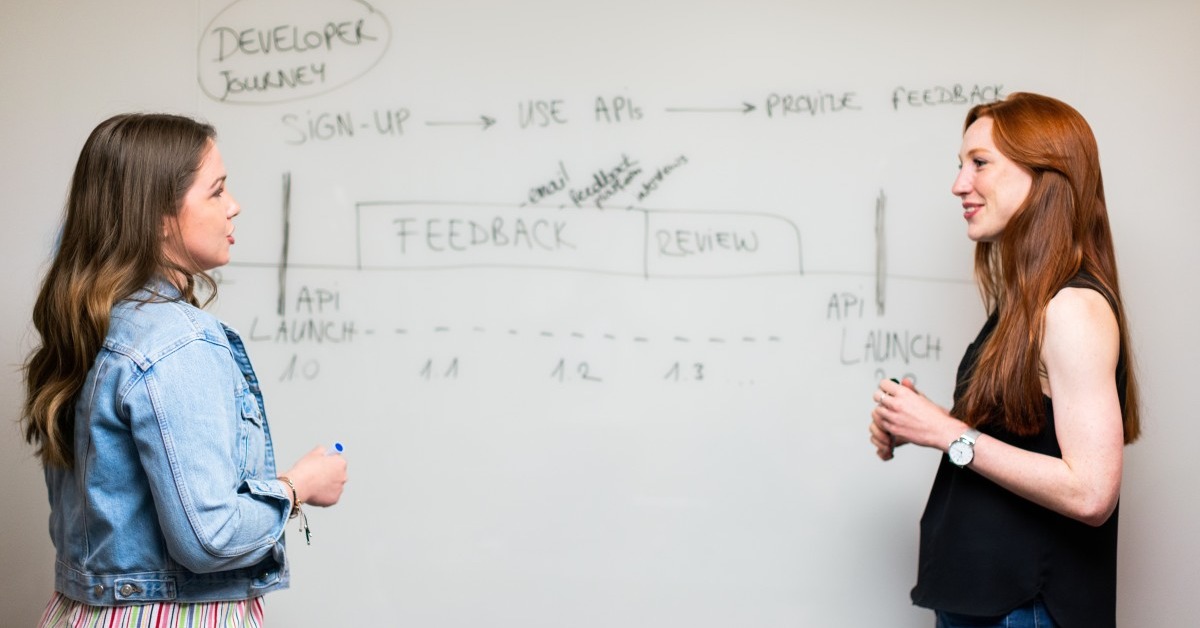
What to Look For in a Master's in Business Analytics Program
Business analytics is so new that not all schools agree [...]

Education policy makers exert a tremendous impact on education in the United States at the district, region, state, and federal levels. They set standards dictating how and what classroom teachers teach. They determine which subjects to include in the curriculum and which metrics will measure students’ grasp of specific concepts by the end of the school year. Entire districts face consequences, such as reduced funding, when students don’t meet achievement goals.
Education policy touches everything that happens in and out of the classroom. If you want to improve the education system at scale, you may not be satisfied working as a teacher or even as a school administrator. You’ll need to transition into public policy or educational leadership if you want to turn your big picture ideas into systemic change.
One way to do that is to earn an educational policy master’s. With this degree, you’ll qualify to step into roles in which you can exert the greatest possible impact on education.
In this article about the value of an education policy master’s, we cover:
“The quick and dirty answer is that there is no single US educational system,” says former teacher and administrator Richard Enna. “There are tens of thousands of districts throughout the country being pulled (in different directions) by a multitude of special interests: the federal, state, and county governments, unions, school boards, politicians, corporations, the media, academia, administrators, teachers, parents, and students.”
Education policy is its own discipline because education in America is complex, with too many moving parts to count. Local districts and states exert the most control, but schools must also meet federal standards. Funding is tied to property values, so schools that are just miles apart may have vastly different annual budgets. Districts across the US grapple with overcrowding, teacher shortages, education equality, lack of diversity, technology in the classroom, and students lagging behind their peers in other nations.
It’s up to policy experts to address these and other challenges at all levels. Education policy analysts working for individual schools and school districts help schools establish policies related to:
At the state level, education policy professionals create policies related:
There are also policy experts working in education-focused agencies in the federal government to ensure the country can stay competitive on the world stage.
| University and Program Name | Learn More |
|
Merrimack College:
Master of Education in Teacher Education
|
|
|
American University:
Masters in Education Policy and Leadership
|
A master’s in education policy isn’t one degree but rather a group of degrees with different names focused on the same discipline. You might, for instance, earn a Master of Arts in Education Policy or a Master of Science in Education Policy. Some colleges and universities offer a Master of Education Policy, while others offer a Master of Public Policy (MPP) in Education Policy or a Master of Education (MEd) in Education Policy.
Some schools group policy and leadership in one program, like American University‘s School of Education’s MEd in Education Policy and Leadership.
Some guides assert broad generalizations about how educational policy master’s programs differ. For instance, it’s not unusual to see the MA in Education Policy held up as a practical degree, while the MS in Education Policy is described as a stepping stone degree for PhD seekers. Some regard the MPP as the more general degree.
However, the reality is that at many schools, Master of Public Policy programs in educational policy are MA in Education Policy degrees by a different name. The vast majority of core courses in the education policy MPP program at Vanderbilt University‘s Peabody College, for instance, cover topics related to education and education policy. That’s why it’s so important to read program guides carefully. Degree names don’t tell you much, if anything, about whether a master’s program (or doctoral program) will support your professional goals.
Students in all the above types of graduate programs complete coursework related to:
The students in part-time and full-time education policy master’s programs are optimists who believe they can make education better on a grand scale. They acknowledge the current education system in the United States is fraught with problems, but they don’t view any of those problems as insurmountable. They’re pursuing master’s degrees in education policy because they’ve dreamed of transforming their districts, improving on the ways students are taught across the entire state, or even driving sweeping education reform at the federal level.
What they may not be are former teachers and administrators. While some education policy master’s programs require applicants to have teaching or school administration experience, there are also plenty of programs willing to consider students from other academic and professional backgrounds’ applications.
While it’s true that some people who study education policy end up in administrative or leadership roles in schools or districts, there are numerous roles in education policy outside the public school arena. With a master’s degree in education policy, you might become a/an:
There are jobs for education policy professionals in:
According to American University, a master’s degree in education policy can lead to careers in nonprofit leadership, curriculum consulting, and even politics.
At Vanderbilt University, students enrolled in the MPP in Education Policy program can choose from among concentrations like K-12 Policy, Higher Education Policy, and Quantitative Methods in Education Policy and choose four or more elective courses related to education and educational policy.
American University writes that its program is for “those with a fervent desire to change the course of American education.” Imagine yourself participating in classroom discussions with the next generation of US education reformers. As you pursue a master’s degree in education policy, you’ll forge connections with education experts, administrators, politicians, and future policymakers like yourself. Every one of these connections can lead to future opportunities.
Many people are inspired to go into education policy careers by their own experiences. In an education policy master’s program, your perspective will expand as you connect with students and faculty from all walks of life. You’ll take classes that elucidate the complexities of the US education system and learn about issues you perhaps previously hadn’t considered, like the school-to-prison pipeline or the lack of diversity in gifted education.
You may be able to transition out of the classroom and into policy in under two years if you enroll in one of the many education policy master’s programs that require students to complete just 30 credit hours of work to graduate. The sooner you enroll, the sooner you’ll be out there identifying and solving problems in education.
If you’ve dreamed of attending a prestigious university, you’re in luck. The colleges and universities in US News & World Report‘s top education policy programs include Stanford University, Harvard University, and Columbia University. Just one year at a school of this caliber can help you make connections that land you in the upper echelon of education policy wonks.
Taking a year off to study in a full-time, on-campus program may not be possible. Relocating to attend a prestigious program may not be an option. Thankfully, you can pursue a master’s degree in education policy from the comfort of your current location in your off-hours. Top online education policy master’s programs can be found at American University.
Some graduate students pursue this degree because they want to be more effective in administrative roles like principal and superintendent. Others dream of someday running for political office on a platform focused on education reform. Maybe you want to work in the private sector. Graduates of Harvard University’s education policy and management master’s program “work for state and federal departments of education, they launch and lead nonprofit organizations and school-community partnerships, they conduct research and data analysis for policy think tanks, and they lead progressive schools.”
In many locations, having a master’s degree can significantly increase your earning potential when you work in public education. Getting an education policy master’s may qualify you for an automatic pay raise or roles that pay more than what you’re currently earning.
You have big plans and even bigger dreams. Earning an education policy master’s may make it easier to switch careers or stand out from the crowd when you’re applying for jobs. It’s not just about having a specific degree on your resume. The network you build in graduate school can be an invaluable source of career support, mentorship, and opportunities. This degree is also an investment in yourself. If you’re not sure what education policy jobs interest you most, going back to school can help you decide.
Whether your graduate school experience inspires you to investigate education reform at the federal level, analyze policy issues driving the evolution of American education, or tackle systemic problems in your local school district, your master’s degree in education policy will open doors. People will be more willing to listen to what you have to say and to trust your judgment.
Here’s the bottom line. While you might not need a master’s degree to launch a career in education policy research or policymaking—especially if you already have experience working in policy analysis or public policy research—there are many upsides to getting one.
This article was originally published in 2019. It has been updated to reflect the most recent data on the subject.
Questions or feedback? Email editor@noodle.com

Business analytics is so new that not all schools agree [...]

In the occupational therapy field, a doctorate can open doors [...]

Genetic counseling is a career that combines science and sensitivity,especially [...]

Even in states where a master's degree isn't required, teachers [...]

Getting an MAT or an MEd in Elementary Ed can [...]
Categorized as: Educational Leadership & Policy, Education & Teaching